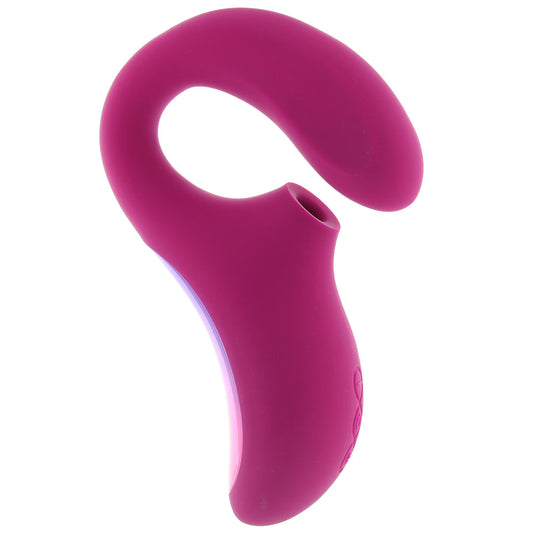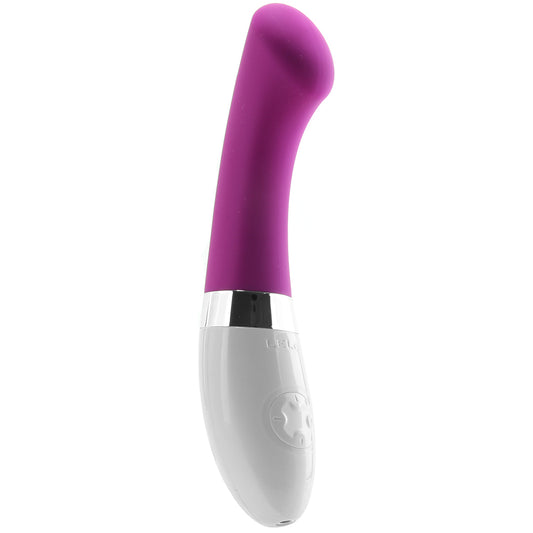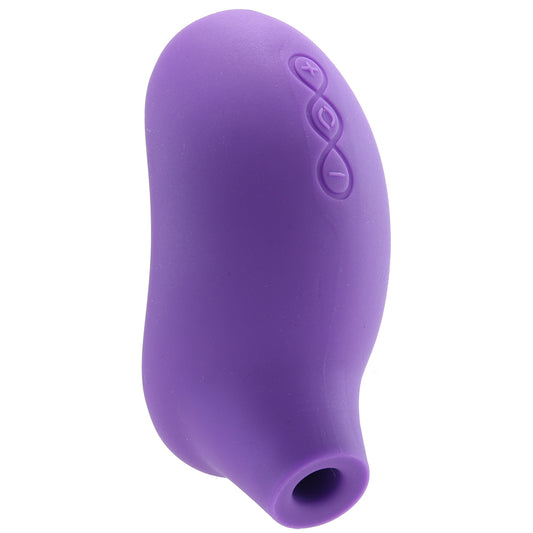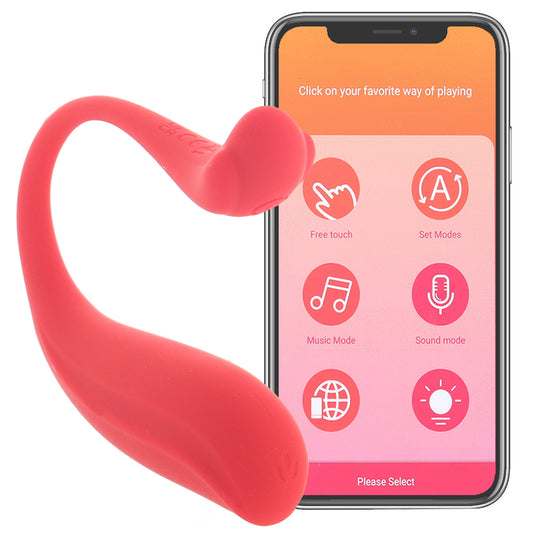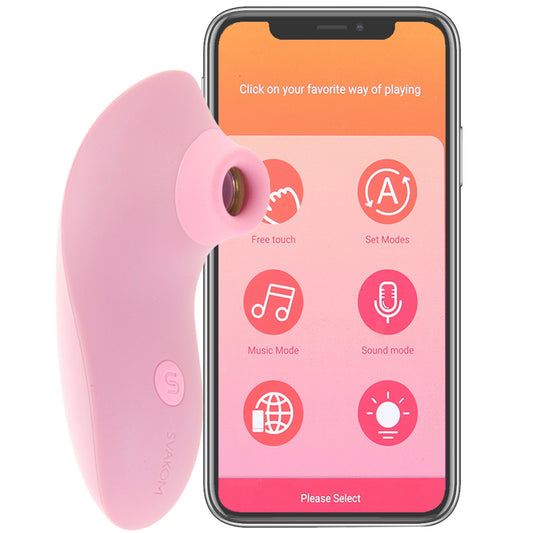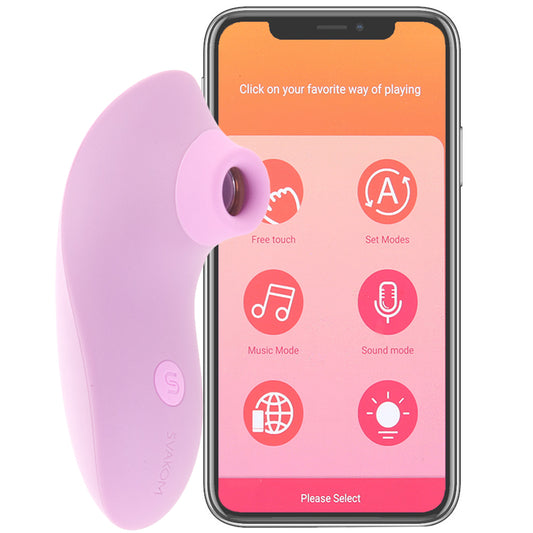
Looking to get back to a healthy libido? Maybe you or your partner is on hormonal birth control and you’ve noticed a decreased libido. Maybe you’re someone who has always had a bit of a low sex drive and you’re now looking to pump things up (pump, pump it up, pump the jams, get that sex drive goin’). Start with learning what is libido and how to navigate the conversation with your partner.
Whatever the reason, there are many ways women can increase their libido right away. Seriously, though, even a few simple lifestyle changes and some adventurous new choices can make a big difference fast. Bonus: Some of these things will also enhance your sexual behavior, which is fun!
Been wondering how to increase female libido instantly? Here are five tips:
1. Get more sleep
It might not sound like the sexiest option, but it works!
Recent scientific research has unveiled a fascinating connection between the quality of sleep and a woman's libido. There’s a compelling case for the power of slumber to enhance intimate desires. When a woman prioritizes her restful nights, she sets the stage for a flourishing sex drive.
Essentially, getting enough sleep supports hormonal balance, allowing a woman’s body to produce optimal levels of key players like testosterone, the hormone associated with sexual desire. Yes, you probably didn’t realize that your testosterone level could impact things, but it’s true! Testosterone isn’t just for men; it’s a sex hormone also in women and helps with your sex drive.
Moreover, a well-rested woman experiences reduced stress levels, leading to a release of tension and an increased capacity for arousal and pleasure. With each night of rejuvenating sleep, your body replenishes energy stores, boosting overall vitality and promoting a sense of well-being, which are crucial for an active and fulfilling sex life.
2. Cut down on alcohol
Margarita Mondays may be fun, but guess what? All that alcohol can actually lead to a low libido.
Yep, while a glass of wine, say, may help lower inhibitions, excessive alcohol consumption can actually lead to fatigue, reduced sensitivity, and difficulty achieving orgasm -- which is one of the top sex problems that women report. Additionally, alcohol can interfere with hormonal balance and impair sexual performance (i.e. it can lead to erectile dysfunction).
By cutting back on alcohol or abstaining altogether, women can experience increased energy, improved hormonal balance, and heightened sensitivity, ultimately leading to a healthier and more satisfying sex life. Yes, an instant female libido booster = skipping the cocktails or switching to mocktails.
3. Get off of hormonal contraception
If a woman is experiencing a hormonal imbalance, sometimes due to hormonal levels that have been changed by taking the birth control pill, being on the ring, or other hormonally-based contraceptive methods, it can help to switch to another solution.
Some sexual dysfunction in women (in particular, a noticeably lowered libido) is linked to hormonal birth control. While using things like condoms or other barriers can feel like a hassle, it may very well be worth it to get that “get up and do me” vibe back.
When you’re looking into this kind of thing, you want to do this in sync with a healthcare professional like an OB-GYN or other expert in women’s health and cycles. For example, you will also want to know whether you have hypoactive sexual desire disorder (HSDD).
What is that, you ask? According to Planned Parenthood, “Hypoactive Sexual Desire Disorder — also called HSDD — is when you’re not interested in sex (have no sex drive or a low sex drive), and it bothers you. It’s one of the most common sexual problems that people have. This could be a lifelong concern, or it can happen over time. It may be a problem all of the time, or only happen in certain situations. People who have HSDD have little or no thoughts or fantasies about sex, don’t respond to their partner’s sexual signals or suggestions, lose desire for sex while having it, or avoid sex all together.”
4. Talk about and reflect on sexual arousal
The truth is, sexual interest and a lowered libido are intimately linked to your experience of life overall. Sexual desire and sexual pleasure are related, which means that low sexual desire sometimes indicates that you’re not being turned on in the way that actually works for you. This can be especially true in partnered sex, though it can also be true for you solo.
One thing that can help is discussing what kind of touch helps get you hot. For example, according to sex research, a ton of women report that male partners touch them with too much pressure, which actually leads to painful sex. Instead, many people with female bodies want lighter touch and more foreplay. Feather-light touch and extended foreplay can lead to an instant boost in female libido if this is what gets you going! And when you’re all turned on, things like sexual intercourse tend to be a whole lot more fun.
Another thing that can drastically affect you is your stage of life. For example, if you’re going through perimenopause, menopause, or postmenopausal, then you may experience vaginal dryness, leading to painful sex. As estrogen levels dip during the postmenopausal phase, things down there can get a bit dry and less lively.
While some women consider things like hormone replacement therapy to help with hormone levels, it’s also worth noting that when it comes to things like vaginal tissue, there are other options that can be super effective … like lube and vibrators! If you want to address your sexual health without things like estrogen or testosterone therapy, this brings us to:
5. Get some sexy sex toys and lube involved
One thing that can help with both turn-on and sexual pleasure is stimulating lady parts. Yes, engaging in some fun exploration with sex toys can actually help you in some fundamental ways.
Seriously though, there are all kinds of evidence showing that vibration, for example, can help women with sexual function. For example, in one study referenced in the Harvard Medical Review “a 2016 study of 70 women who had difficulty becoming aroused or reaching orgasm—two-thirds of participants reported increased vaginal lubrication, orgasm, and genital sensation after using a vibrator for three months.”
That’s right, different types of vibrators can help with sexual healing. Vibrators provide external or internal stimulation to erogenous zones, and can play a significant role in addressing the challenges faced by postmenopausal women. Firstly, vibrators can help enhance blood flow to the genital area. The rhythmic vibrations and stimulation from a vibrator also increase circulation, promoting the dilation of blood vessels and encouraging the engorgement of the tissues. This, in turn, can help combat vaginal dryness and improve natural lubrication, making sexual activity more comfortable and enjoyable.
There are so many different sex toys for women it’s almost hard to narrow it down. But research would suggest that vibrators -- both internal and external -- are a great place to start. With their buzzing magic, these fantastic gadgets can stimulate blood flow and wake up the slumbering sensations. They bring life back to the party, making the nether regions all warm and tingly, like a tropical vacation for the lady parts.
Furthermore, the use of vibrators can provide direct stimulation to the clitoris and other sensitive areas, which may have become less responsive due to hormonal changes. By delivering pleasurable sensations, vibrators can enhance sexual arousal and facilitate the release of natural lubrication. This can contribute to greater sexual satisfaction and the potential for more intense orgasms.
Also, if you’ve never tried a clit stimulator, you really wanna get on that. ;)
Finally, the use of sex toys can be empowering and increase body confidence in all women. They allow you to explore your body, discover new sensations, and gain a deeper understanding of what brings you pleasure. This self-exploration can help foster communication with a partner, leading to more fulfilling and intimate sexual experiences.
6. Try some libido supplements
You really want to do your research here because there’s a lot of, well, crap on the market (not to put too fine a point on it). But some supplements can help boost all your other efforts. It’s really everything we’re talking about here put together that makes the difference.
It’s also worth noting that if you contend with anxiety or depression, supplements that address those are also likely to, by proxy, help with reduced libido. In other words, when your mental health is good and you’re feeling more relaxed and happy overall, the sexual drive also tends to go up!
A few choices in this category include St. John’s Wort, as well as maca, ginseng, and fenugreek.
The most important thing to keep in mind is that this is doable! You can shift, grow, and expand in all areas of life, including your sex drive. Remember that you’re the ultimate authority on your own pleasure and joy, and that anything is possible when you’re committed and open.
---
References
Eric Suni, "The Relationship Between Sex and Sleep", SleepFoundation, Published February 8, 2023. Accessed May 29th, 2023. https://www.sleepfoundation.org/physical-health/sex-sleep#:~:text=Research%20studies%20have%20found%20multiple,risk%20factor%20for%20sexual%20dysfunction.
Planned Parenthood Staff, "Hypoactive Sexual Desire Disorder (HSDD)", Planned Parenthood. Published July 9th, 2020. Accessed May 29th, 2023. https://www.plannedparenthood.org/learn/sex-pleasure-and-sexual-dysfunction/sexual-dysfunction/hypoactive-sexual-desire-disorder-hsdd
Mount Sinai Staff, "St. John's Wort", Mount Sinai. Published on March 12th, 2019. Accessed May 29th, 2023. https://www.mountsinai.org/health-library/herb/st-johns-wort
Harvard Medical School staff, "Yes, you can have better sex in midlife and in the years beyond", Harvard Medical School. Published September 30, 2021. Accessed May 29th, 2023. https://www.health.harvard.edu/womens-health/yes-you-can-have-better-sex-in-midlife-and-in-the-years-beyond

